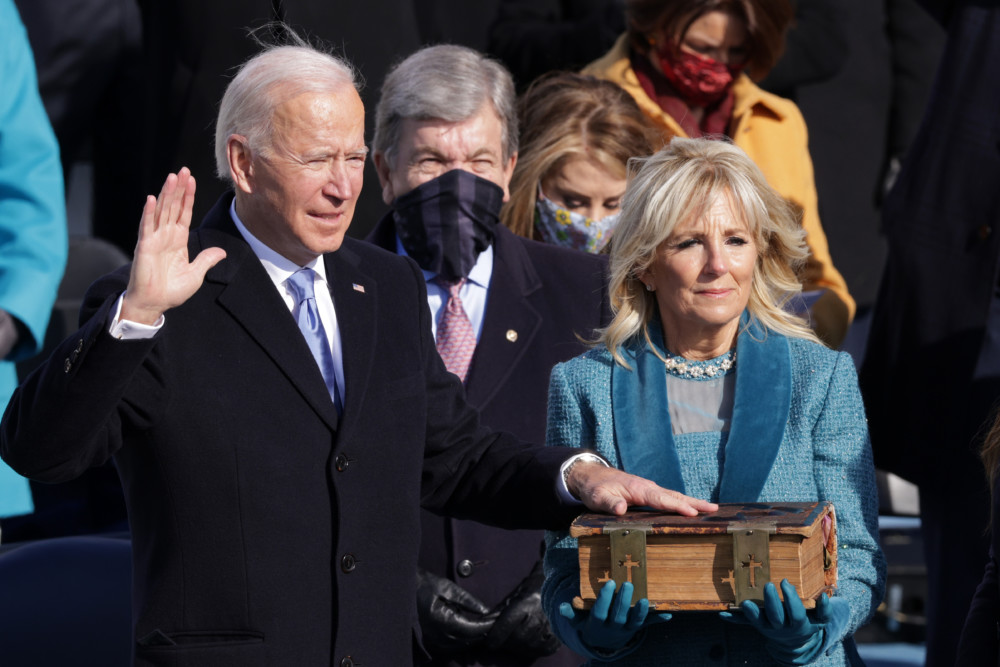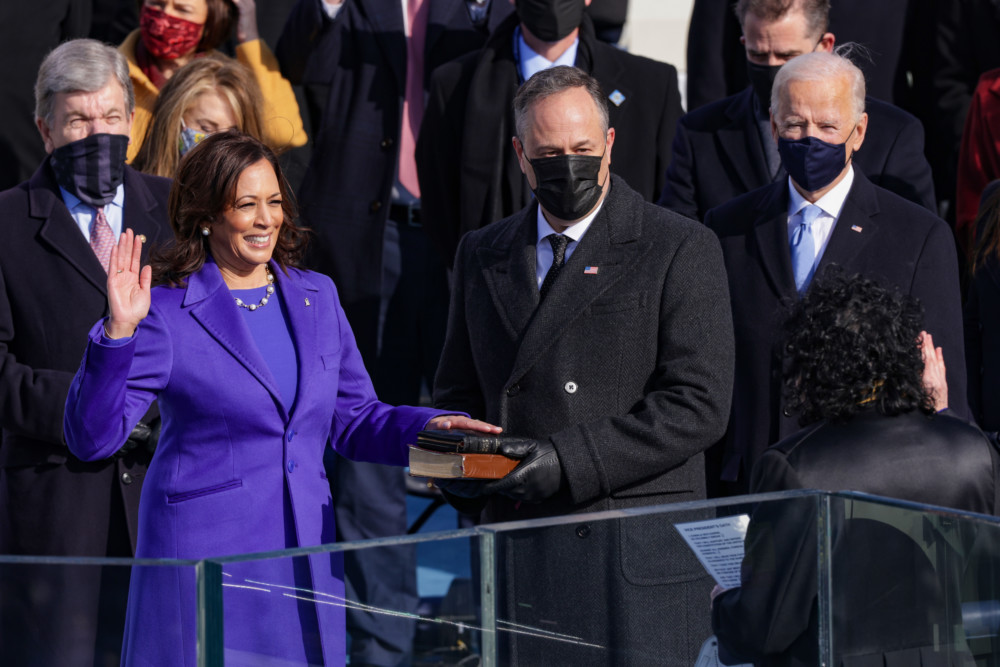By David Lightman
McClatchy Washington Bureau
WWR Article Summary (tl;dr) For the first time in history, a woman of color is on the presidential ticket. The announcement was made late this afternoon just days before the virtual Democratic convention is set to begin.
Washington
Joe Biden’s choice of Sen. Kamala Harris brings to the Democratic ticket a woman who has won three times statewide in California, but has also been a polarizing figure.
She was San Francisco’s top prosecutor from 2004 to 2011, then attorney general from 2011 until 2017. While holding statewide office, she called herself California’s “top cop,” and her actions were sharply criticized by many activists in communities of color.
Since becoming a senator in 2017, though, she’s been a congressional leader in efforts to revamp the criminal justice system, becoming notably outspoken since George Floyd died in Minneapolis on May 25 while in police custody.
The choice was hailed by Democrats. House Speaker Nancy Pelosi, D-Calif., who said that throughout her career, Harris “has advanced a more just and fair future for all.”
Harris’ positions over the years raise questions from those familiar with her in California about her views.
At She the People, Aimee Allison, the Oakland, California-based founder and director of the national network for women of color, said last month that Harris was “considered a moderate to liberal prosecutor who wasn’t talking about structural change.”
Tuesday, Allison was enthusiastic about the Harris pick. She called it a “watershed moment for Black women and women of color.”
Sacramento-based Democratic strategist Andrew Acosta noted that Harris’ record was well-known, and she’s weathered any storms it caused. “A lot has come out, and people know what they’re getting,” he said.
Harris’ positions over the years have in the past raised questions from those familiar with her in California about her views.
“She would be astute enough to see where things are going and then try to move in that direction … Is she going to stand firm on her 2020 positions?”
Brian Marvel, president of the Peace Officers Research Association of California, told The Sacramento Bee recently.
Allison cited Harris’ recent efforts to lead the way on police reform.
“In the past months, Sen. Harris has taken a stand against police brutality in the streets and in the Senate. Her work to understand the struggles of the women of color leading the movement on the ground is what sets her apart in this critical moment,” Allison said.
While attorney general, Harris did not take a position on the 2015 California Assembly proposal to make sure incidents involving police using deadly force were independently investigated. Now, though, the bill’s sponsor views her as an important voice aiding his bid to pass the measure.
Other positions:
-Harris was against a 2010 state initiative to legalize marijuana, and now strongly supports legislation.
-She did not support the 2015 effort to require all law enforcement officials to wear body cameras. She did have agents in her own department do so, but said local governments should decide if their employees should wear them.
-She was against a 2004 state initiative to ease California’s minimum mandatory sentencing laws. The criminal justice reform plan she proposed last year would end minimum mandatory sentences.
Harris explained in 2004 that while she was not comfortable with the three strike laws, the need to prove intent would make it harder for her to prosecute domestic violence cases. The ballot measure, which was defeated, would have reclassified eight felonies that counted as a “strike,” including burglary of an unoccupied home and certain arsons that did not cause significant injury.
As attorney general in 2011, she also was not eager to join a bid to soften the law.
“When I was district attorney for San Francisco, I had a three strikes policy that in general did not seek a 25-year-to-life sentence unless it was of a serious or violent nature,” she told KPCC public radio.
But, she said, “We also have to give weight to the ability of elected DA’s to exercise good judgment in determining who will end up in state prison.”
When Harris ran for president in 2019, though, she was clear on her position. Her criminal justice reform plan said it succinctly: “Eliminate all mandatory minimums by letting judges issue sentences below the mandatory minimum.”
Doing so on the federal level, Harris said, would motivate states to do the same. And she would aid prosecutors by providing federal funds to help them decide which cases would best help “promote public safety and justice.”
One of the most vocal criticisms against Harris involves her view of the death penalty. Harris has long opposed the death penalty.
Shortly after she became San Francisco’s district attorney, Officer Isaac Espinoza was killed. Harris would not seek the death penalty against suspect David Hill, who would be given two consecutive life terms.
“I gave my word to the people of San Francisco that I oppose the death penalty, and I will honor that commitment despite the strong emotions evoked by this case,” she told the San Francisco Chronicle.
Many in the law enforcement community were furious, and worked for her opponent when she ran for attorney general in 2010. But over the years, the relationship was repaired.
And in 2014, after a federal judge ruled California’s death penalty unconstitutional, Harris appealed the decision.
“It is not supported by the law, and it undermines important protections that our courts provide to defendants,” she said at the time. “This flawed ruling requires appellate review.”
Harris’ time as attorney general was also involved in another controversy. A veteran Harris staff member resigned his job in 2018 after the Bee inquired about a $400,000 harassment and retaliation settlement resulting from his time working for Harris at the California Department of Justice.
Larry Wallace, who was director of the Division of Law Enforcement, was accused by his former executive assistant in December 2016 of “gender harassment” and other behavior, including often asking her to crawl under his desk to change the paper in his printer.
The lawsuit was filed on Dec. 30, 2016, when Harris was still attorney general but preparing to be sworn in as California’s newly elected Democratic senator. It was settled in May, 2017, by Xavier Becerra, who was named to succeed her as attorney general.
“We were unaware of this issue and take accusations of harassment extremely seriously. This evening, Mr. Wallace offered his resignation to the senator and she accepted it,” Harris spokeswoman Lily Adams told the Bee in 2018.
___
Distributed by Tribune Content Agency, LLC.

















































































































































































































































































































































































